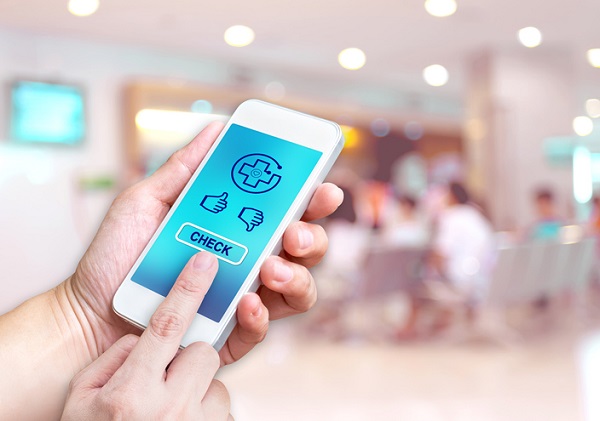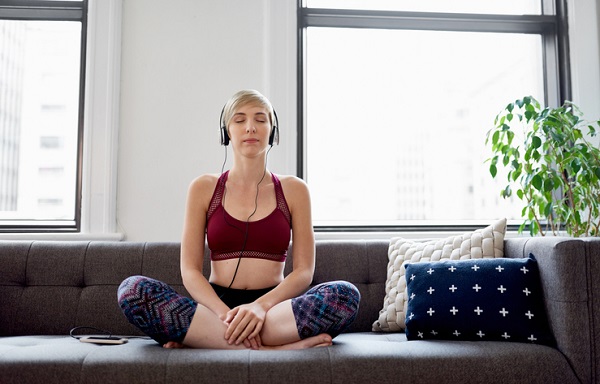
Technological advancements have led to the rise of wellness apps for smartphones, many of which have been gaining a significant audience in recent years. Apps like Headspace and Calm even have the user base numbers to match—in particular, Headspace has been downloaded more than 54 million times worldwide as of September 2019 (Dodds, 2019).
In our increasingly digitized world, it’s easier than ever to find an app designed for a particular goal. However, what impact are these apps having in the realm of wellness? Here are three things you should know before you become a wellness counsellor.
Wellness Apps Have a Variety of Functions Depending On Their Focus
Many of the more popular wellness apps tend to focus on mindfulness, and promoting its various techniques. Examples of these include Headspace and Calm, which feature audio recordings of meditations to listen to with a narrator coaching users along, often with a soothing voice and a focus on deep breathing. These kinds of wellness apps have become very popular and are generating significant revenue. For example, Calm has been valued at $1 billion USD as of February 2019 (LaVito, 2019).

However, there are other wellness apps with other focal points, such as MyFitnessPal (an app focused on dieting and nutrition), SleepCycle (which helps users with their sleep hygiene and quality of sleep), Happify (which aids users in combating stress), and Moodpath (a mood-screening app asking users numerous questions to determine their mood before collecting data with which to assess their mental health). An app for every area of wellness is seemingly out there—and those working after receiving their diploma in wellness counselling can suggest these apps to be used by the client during their own time.
Some Have Been Used in Studies, With Positive Results
Not only are wellness apps increasing in prominence, but they’ve also been subjected to studies and experiments to test their effectiveness. A study from the University of East London has observed mindfulness apps like Headspace as being able to reduce feelings of depression over a span of 10 days (Howells, Ivtzan, & Eiroa-Orosa, 2014). Headspace’s efficacy has also been tested on employees during the workday, as another study in the United Kingdom had 238 employees listen to one meditation per day, which led to lowered blood pressure, an improved sense of well-being, and lessened job strain (Bostock, Crosswell, Prather, & Steptoe, 2019). Another study testing the mindfulness app Wildflowers over a three-week span showed that mindfulness therapy through a smartphone app can help improve one’s long-term attentional control, while also improving stress and mood in the short term (Walsh, Saab, & Farb, 2019).
If You Want to Become a Wellness Counsellor, Be Aware That There’s Still Debate Over Effectiveness
Those wanting to become a wellness counsellor will need to be able to assess a client’s emotional, mental, physical, and spiritual wellness, and these kinds of apps and technologies can improve clients’ sense of themselves. However, although the ways in which wellness app developers have been harnessing modern technology is intriguing, results and opinions on their effectiveness is mixed.

For example, researchers in Australia tested the efficiency of various fitness apps in 2018, and found that only one of the 22 apps they tested had been proven to work. In particular, they had tested the aforementioned MyFitnessPal, only to find that it had made nearly no difference to the participants’ weight over a six-month time span, and a calorie-counting app, FatSecret, resulted in no difference in terms of weight loss (Byambasuren, Sanders, Beller, & Glasziou, 2018). Furthermore, other experts have found that very little research actually goes into building these health and wellness apps, and that a combination of both User Interaction development practices and scientific research standards should be used to ensure apps are both effective and backed by science (Kraus, 2019).
Want to enroll in a wellness counselling program in Vancouver?
Contact Rhodes Wellness College for more information.
Works Cited
Dodds, S. (2019, September 2). The former monk who runs a $100m meditation firm. Retrieved from https://www.bbc.com/news/business-49394848
LaVito, A. (2019, February 6). Relaxation app Calm raises $88 million, valuing it $1 billion. Retrieved from https://www.cnbc.com/2019/02/05/calm-raises-88-million-valuing-the-meditation-app-at-1-billion.html
Howells, A., Ivtzan, I., & Eiroa-Orosa, F. J. (2014). Putting the ‘app’ in Happiness: A Randomised Controlled Trial of a Smartphone-Based Mindfulness Intervention to Enhance Wellbeing. Journal of Happiness Studies, 17(1), 163–185. doi: 10.1007/s10902-014-9589-1
Walsh, K. M., Saab, B. J., & Farb, N. A. (2019). Effects of a Mindfulness Meditation App on Subjective Well-Being: Active Randomized Controlled Trial and Experience Sampling Study. JMIR Mental Health, 6(1). doi: 10.2196/10844
Bostock, S., Crosswell, A. D., Prather, A. A., & Steptoe, A. (2019). Mindfulness on-the-go: Effects of a mindfulness meditation app on work stress and well-being. Journal of Occupational Health Psychology, 24(1), 127–138. doi: 10.1037/ocp0000118
Byambasuren, O., Sanders, S., Beller, E., & Glasziou, P. (2018). Prescribable mHealth apps identified from an overview of systematic reviews. Npj Digital Medicine, 1(1). doi: 10.1038/s41746-018-0021-9
Kraus, R. (2019, June 18). So many health and wellness apps haven’t done research to back up their claims. Retrieved from https://mashable.com/article/health-and-wellness-apps-no-research/









